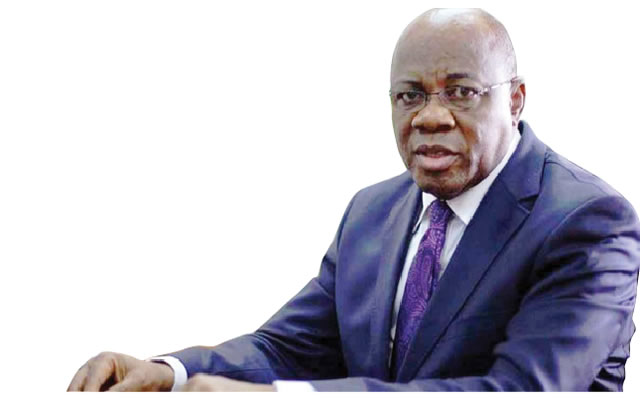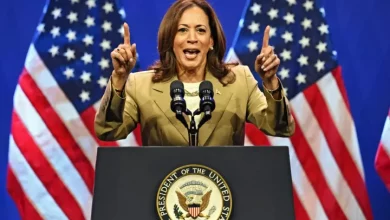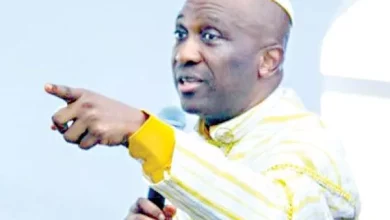Tinubu must drop petroleum minister portfolio – Agbakoba

Dr. Olisa Agbakoba.
Dr Olisa Agbakoba is a distinguished Senior Advocate of Nigeria and former President of the Nigerian Bar Association. While speaking with Biodun Busari, he offers his insightful perspective on Nigeria’s persistent challenges, from escalating fuel prices and the urgent need for judicial reform to the contentious debate over the creation of additional states
Recently, there have been persistent calls for a people-oriented constitution. Why now?
The reason is simple: the marriage of a wife to a man must have clear rules. If you get married and become polygamous in an agreement where you told your wife it would be a monogamous relationship, there would be a problem. Your wife would be entitled to ask for the rules of the marriage.
If you apply this to the Nigerian scene, the problem dates back to 1914. The autonomous people of Nigeria, represented by Nigerians who were in the country before amalgamation on January 1, 1914, never agreed on how they would be involved in the political union.
Everything was imposed from 1914 to 1960. I’m sorry to say that the political class of Nigeria, stretching back to 1960, has never had the interests of Nigerians in view.
It is critical when we reach a logjam and are not moving forward, to find a solution.
This question has been pertinent since I was 29, and now I’m 71. That alone shows that something is wrong. Nigeria will not move forward substantially without a sit-down.
It must be a conference that involves both parties in the marriage. If you go back to pre-1914, there were people in what is today Nigeria.
We had the Borno Empire, the Onitsha Empire, the Benin Empire, the Oyo Empire, the Sokoto Caliphate, and others. They are the owners of Nigeria, and these are the ethnic nationalities that the government of the day must be magnanimous and open-minded enough to allow to speak.
They should determine the kind of union they want. There has been a lot of deceit, with terms like restructuring, rearrangement, redesigning, and political devolution, but it is just at the campaign level.
Nigeria is held down by the force of arms. If you remove the army and the police, this country will fall apart.
When Tito, the leader of former Yugoslavia, died, the country broke apart into six because they were not one.
They were held together by force. Tito’s absence made the people of Croatia, Macedonia, Serbia, Slovenia, Bosnia and Herzegovina, and Montenegro assert their independence. So anyone saying Nigeria is a country is not truthful. It is a country bound by force.
Let Nigerians organise their discussions freely and ask themselves, “Do I want to marry you?” If yes, “How?”.
That is what will be viable to create a new Nigeria. The reason politicians are stealing money is because they don’t believe in the concept of Nigeria as a nation. That’s why we are where we are.
Unfortunately, no Nigerian leader has been able to step aside to allow these discussions.
What President Bola Tinubu needs to do is to allow people to have the discussions and bless it, just as a father would bless the relationship and wedding of his children.
You once hailed the policies of President Bola Tinubu, including the removal of the fuel subsidy, as groundwork for a viable economy. But Nigerians are groaning with pain under his administration. What seems to be wrong?
It is the process of implementation. I restate my view that an economy must run on scientifically determined processes. The economy must be allowed to run free. And by freedom, I mean the economy must be free from government interference. The private sector must be allowed to drive the economy, not the government. The government’s role is to set policies and regulate the behaviour of businessmen. The problem is that the government is involved in business and has a serious interest. When you have policies that will shape the development of Nigeria, those policies may be impeded by political players who claim they want the process to grow. President Tinubu is conceptually correct, but the problem is whether the architects and builders who are supposed to fix the cracks are doing so correctly. There are no issues with President Tinubu acknowledging deficiencies, but the problem is whether those involved are fixing them.
If you are talking about government interference, does that mean Nigerians shouldn’t be excited about the Dangote Refinery because the Nigerian National Petroleum Corporation Limited is still involved?
That’s what it means. This NNPCL, what exactly is it? Our understanding is that NNPCL is a private company, and if that is the case, why is it also a regulator? Why is it the only one that buys all the crude? That’s the challenge. I would have said that the NNPCL should be like Oando, TotalEnergies, Shell, and Seplat, but it is not. The NNPCL should have no role in how we run our crude oil sales; it should just be a market player that determines how it will do business. It should be pursuing business in the same way Seplat does. Why does the NNPCL announce the new pump prices? Is that its role? Don’t we have regulators? We need to determine what the functions of the NNPCL are. If we establish that, we can then choose how we want things to proceed.
Our economy should have a clear distinction between policymakers, regulators, and the private sector. If the NNPCL is everywhere, we will face an unfortunate situation where we don’t know who does what, and prices will rise rather than fall. I’m not saying the fuel price should go up or down, but the government should not mix public and private functions for the NNPCL.
Is the fuel price hike announced by the NNPCL part of the cost Nigerians have to bear for the subsidy removal?
It’s not part of the cost. That’s my point. There’s a saying in logic: ‘When the cause ceases to have the effect, the effect ceases.’ It means that when the cause of the price hike is examined and it seems that the wrong parties are hiking the price, and when these wrong parties are removed, the effect of their decision will cease. It means that the NNPCL is not the right institution to discuss price increases. What is the upstream regulator doing? It is their job. I’m not saying the price hike is right or wrong, but the structure is not right. If the price of fuel has gone up, it is not clear whether Nigerians should accept it if it comes from the wrong source. But if it is explained to Nigerians with clear evidence that everyone is suffering from it, the story will be different.
When you see the wrong people making decisions that lead to long queues, it creates confusion. Nigerians are told to make sacrifices and while they have indeed been sacrificing, they are unhappy when they are the only ones bearing the burden. Policymakers must also share in the sacrifice and explain why Nigerians are suffering. It’s not about enduring the pain, but the message of the pain is poorly delivered.
What is the significance of the Petroleum Industry Act in this whole issue, given it was enacted for legal, governance, regulatory, and fiscal frameworks of the petroleum industry?
The significance of the PIA is that it is not working. It is a brilliant document, but its significance will only be felt if it works. If there is significance in the PIA, which has made the NNPCL a private company, why is the NNPCL still acting as a government agency? It is just a sham. The PIA is not functioning as intended.
Was this the same issue when you asked President Tinubu to step down as the Minister of Petroleum Resources?
It is the same issue. The President shouldn’t be involved in petroleum. It gives the wrong impression that President Tinubu is the Minister of Petroleum Resources. Why not the Minister of Health? It’s not only about President Tinubu. Why does the Nigerian president always hold the portfolio of petroleum? It is not necessary. There is a critical problem in the petroleum industry. If you ask Nigerians if they want to be in Nigeria, they will all say ‘yes, but’. It is that ‘but’ that President Tinubu must resolve. Nobody wants Nigeria to fail. President Tinubu should relinquish the position of Minister of Petroleum. It doesn’t add to or strengthen his position.
As an energy lawyer, I see firsthand how international oil companies control our oil business and take away all the money. Why? Section 44 and Section 16 of the Constitution make us owners. Why are we giving away our ownership to foreign companies? Foreign companies don’t necessarily have our interests at heart. The first thing to do is to reinstate Nigeria’s oil industry to ensure that Nigerians drive the industry. For instance, why should we make the drillers co-owners? All we need to do is ask how much they want for the extraction and pay them. But Nigeria makes the drilling companies co-owners in what they call a production-sharing contract or joint venture agreement. These are the two key agreements that drive the oil industry.
And the Total, Mobil of this world are owners of oil wells. These oil companies are draining us of resources. They are the ones sabotaging Aliko Dangote.
They didn’t want his refinery to work. They influence and shape policies to prevent the government from supporting Dangote.
I’m glad that President Tinubu has finally realised this is in our interest. We must take back our country. We must allow foreigners in our economy because it is an interdependent world, but we must be clear about what we want to offer them.
Speaking of taking back our country, Nigerians protested in August under the #EndBadGovernance banner. Ten protesters have been charged with treason by the Federal Government. Is this not a violation of their human rights?
To be honest, if I were the President, I would regard the current situation as extraordinary. I wouldn’t charge anyone to court unless their conduct during the protests was so severe that it involved serious offences like murder. If they merely participated in the protests, I would seek to make peace rather than resort to legal action. It takes two to make peace. If people are protesting due to feeling disadvantaged, I wouldn’t crack down on them simply for protesting. However, if they vandalise property or commit serious crimes, they can be arrested.






